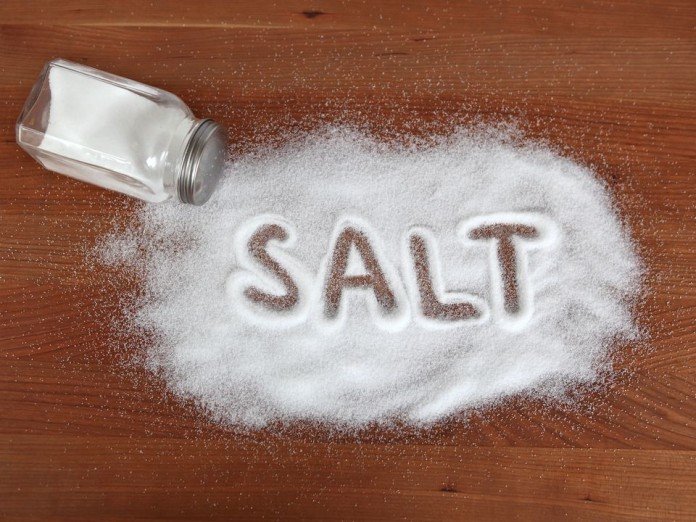Table salt or common salt is a mineral composed primarily of sodium chloride (NaCl) , a chemical compound belonging to the larger class of salts; salt in its natural form as a crystalline mineral is known as rock salt or halite.
This mineral compound which has been helping human in making their food tasty, likewise causing serious harm when it's intake is too much in the body system.
The usefulness of this salt does more than just making your food taste more delicious.
It’s important for your body to function properly..... Sodium, one of the key ingredients in table salt, regulates blood flow and pressure, and helps transmit messages between nerves and muscle fibers. Chloride, the other chemical in table salt, aids in digestion. Foods in your diet need to have enough salt replenish these nutrients to keep you healthy.
When you consume too much sodium in your diet, your body holds extra water. That’s because the kidneys, which filter out waste from the blood, maintain a special ratio of electrolytes, such as sodium to potassium, to water.
Few of those people who are at high risk of developing health problems related to salt consumption are listed below;
People over age 50
People who have high or slightly elevated blood pressure
People who have diabetes
Consumption of more salt in the diet makes the kidneys to keep more water in the body system which can have a lot of undesirable effects such as ;
Edema which causes swelling in places like the hands, arms, feet, ankles, and legs.
Affecting the brain : too much consumption of salt could even impact the brain function of ageing adults as those with high-sodium diets had a higher chance of cognitive decline than those with less salt in their diets. It is important to keep track of how much salt to be consumed, particularly in ageing adults and make changes if necessary.
- Increased thirst rate : Hence, salt can make you thirsty which is the body’s way of trying to correct that sodium -water ratio. Not drinking enough water could force the body to draw water out of other cells, causing dehydration.
People who consume high - sodium diets usually urinate more because of all the excess water. Every time you urinate, your body loses calcium, the mineral that, among other things, makes strong bones and teeth; urinate too often and the body could lose too much calcium, weakening bones and exacerbating osteoporosis.
Osteoporosis is a condition of fragile bone with an increased susceptibility to fracture. Osteoporosis weakens bone and increases risk of bones breaking. Bone mass (bone density) decreases after 35 years of age, and bone loss occurs more rapidly in women after menopause.
- High blood pressure : Nutritionists have warned that consumption of sodium should not be more than only 1,500 milligrams. Taking extra sodium can increase blood pressure by holding more fluid in the body, making your heart pump harder. More fluid in general means more blood coursing through veins and arteries. Over time, that causes them to stiffen, which could lead to high blood pressure.
- Causing stomach ulcer : Too much sodium has been linked to stomach ulcers and cancer in animals. Although more research is needed to back up this proof. Hence, people should be wary of salt damaging their stomach lining.
Hence, it is s clear that too much salt can have serious long-term health implications. Therefore veryone should find a way of minimizing their salt intake. probably one needs to play closer attention to your salt intake.
NOTE: All observations and corrections about this post are welcomed.
COMMENT, RESTEEM AND UPVOTE
THANKS SO MUCH


Congratulations @smart-shaegxy! You have completed some achievement on Steemit and have been rewarded with new badge(s) :
Click on any badge to view your own Board of Honor on SteemitBoard.
For more information about SteemitBoard, click here
If you no longer want to receive notifications, reply to this comment with the word
STOP